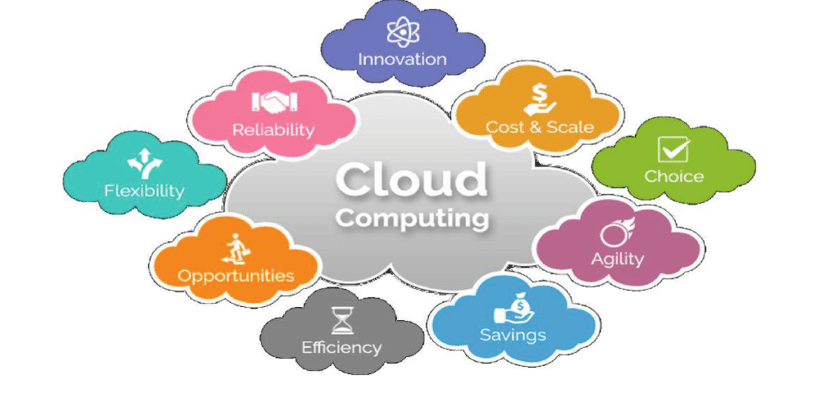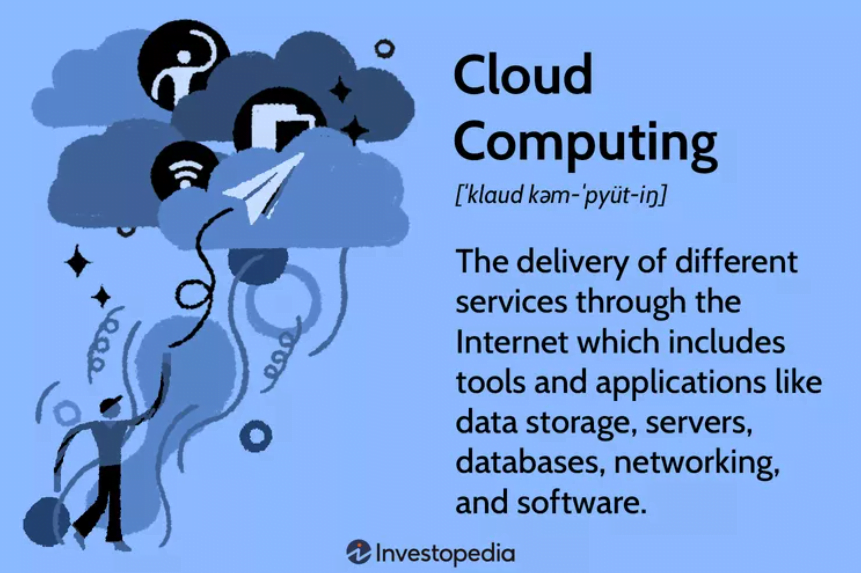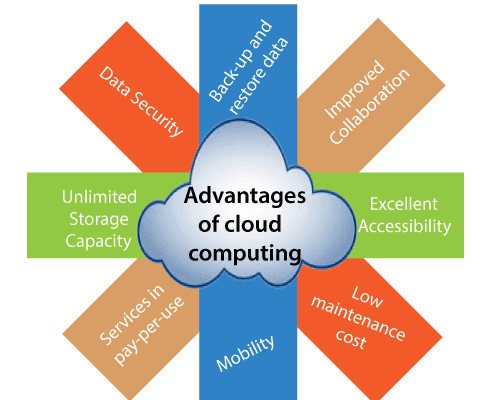
Cloud computing has revolutionized the way businesses access and utilize computing resources. It has provided small businesses with the opportunity to access advanced technologies that were once only available to large corporations. In this article, we will provide an introduction to cloud computing, discussing what it is and how it works.
We will also explore the benefits of this advanced system for small businesses and discuss some of the challenges and considerations that need to be taken into account when implementing a cloud-based solution. By the end of this article, readers will have a better understanding of the concept and how it can be beneficial for small businesses.
What is Cloud Computing?
When computer services are delivered through the Internet, such as servers, storage, databases, networking, software, analytics, and more, this is referred to as cloud computing. Individuals and companies may obtain computer resources on demand and pay only for what they use, as opposed to having to invest in costly gear and manage on-premises data centres.

Also read: Use Booty Builder easily and conveniently! A step-by-step guide
Infrastructure as a Service (IaaS), Platform as a Service (PaaS), and Software as a Service (SaaS) are the three primary service categories that commonly makeup cloud computing. Users may access virtualized computing resources including servers, storage, and networking thanks to IaaS. SaaS provides online software delivery, whereas PaaS provides a framework for creating and deploying applications.
Numerous advantages, including improved scalability, flexibility, and cost savings, may be obtained from cloud computing. Organisations may simply scale up or down to meet shifting demand, quickly provide resources, and do so without having to make initial capital commitments.
Instead of depending on hardware and software, cloud computing enables small businesses to access computing tools, software, and data storage over the internet. Small-scale businesses may benefit from increased freedom, expense savings, and improved teamwork as a result of this.

Here are some of the main advantages of Cloud Computing:
Cost Savings
For tiny companies, cost savings is one of the cloud computing system’s most important benefits. Small companies can avoid the up-front costs associated with purchasing and keeping on-premise hardware and software by using its services. Instead, businesses pay for the tools they need on a monthly basis. Long-term cost reductions can result from this, especially since tiny businesses can easily increase or reduce utilisation in response to demand.
Greater adaptability
Small businesses can adapt more easily thanks to cloud software. Businesses can access their apps and data using cloud services from anywhere at any time as long as they have internet connectivity. Employees can now work from their residences, while traveling, or even from the client’s workplace without having to invest in costly hardware or software.
Cloud computing Enhances Better teamwork
It also provides tiny companies with the benefit of better teamwork. No matter where they are, employees can quickly exchange data and documents and interact with one another thanks to this technology. The likelihood of data loss and duplication will be reduced, and this will improve efficiency and collaboration.
Better Security
Cloud computing offers better security in addition to these benefits because cloud companies typically have more robust security measures than smaller businesses could handle on their own. Furthermore, because businesses can quickly increase or reduce resources as needed and gain access to automatic software and patch upgrades, it increases scalability.
Conclusion
Finally, cloud computing offers a variety of benefits to small companies, including cost savings, increased freedom, improved teamwork, enhanced security, and superb scalability. With its help, small businesses can effectively fight in the cutthroat business climate of today on an equal footing with larger corporations.
